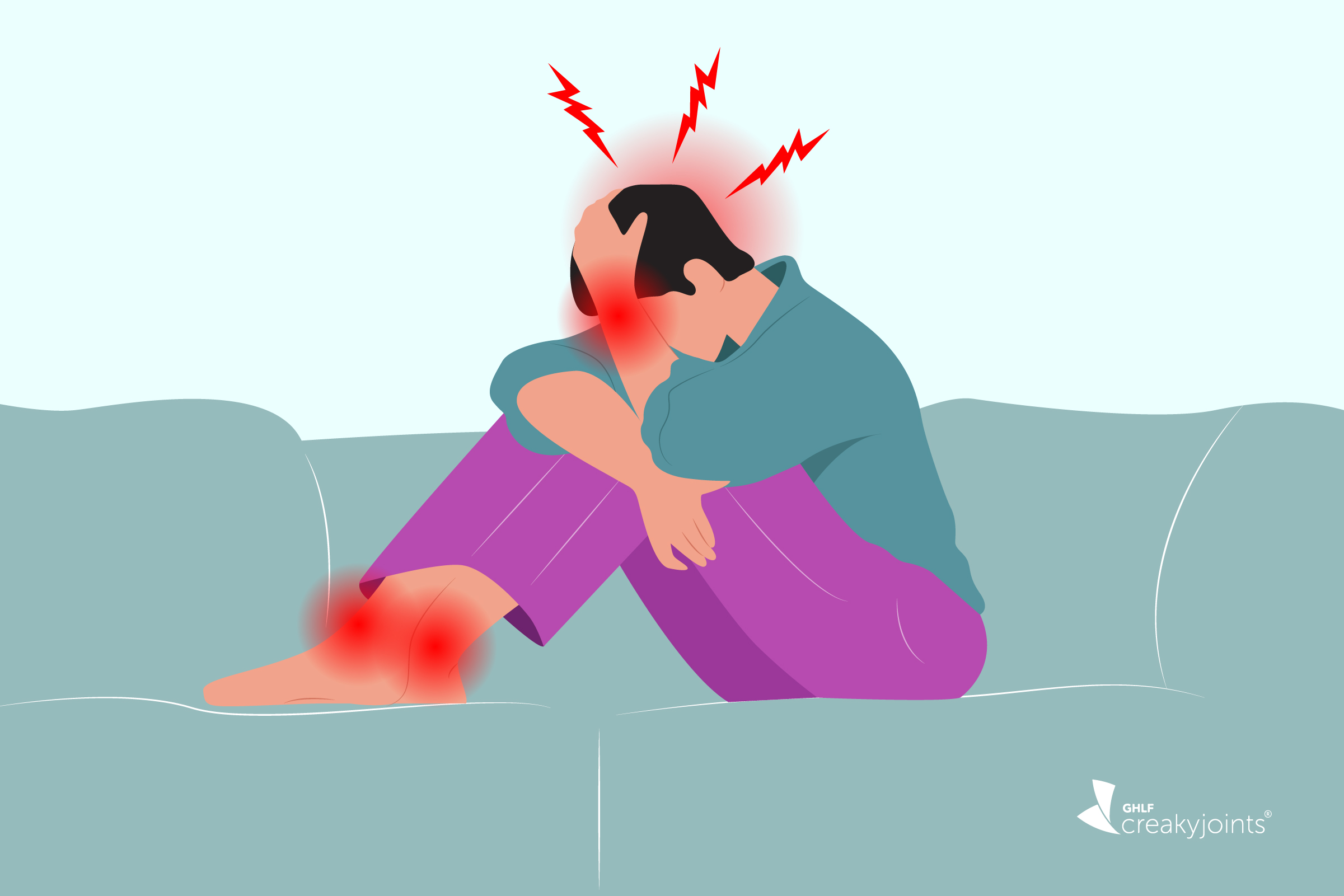In honor of World IBD Day, dietitians from three different continents share tips on managing diet and inflammatory bowel disease (IBD).
Ensuring Equity in Inflammatory Bowel Disease (IBD) Care for LGBTQ+ People
Ensuring Equity in Inflammatory Bowel Disease (IBD) Care for LGBTQ+ People
Exploring the unique challenges faced by LGBTQ+ people with IBD and ways to create more equitable, inclusive health care environments for better health outcomes.
November 30, 2023
Susan Jara

Nearly 1 in 100 people live with inflammatory bowel disease (IBD) in the United States. IBD, an umbrella term for conditions causing inflammation of the digestive tract, leads to distressing symptoms such as diarrhea, abdominal pain, rectal bleeding, and weight loss. Two primary types of IBD include Crohn’s disease and ulcerative colitis (UC).
LGBTQ+ individuals living with IBD encounter distinct challenges, both in their medical care and in disclosing their condition to others. For many, sharing their diagnosis of Crohn’s or UC can be as daunting as “coming out” as gay or lesbian. In fact, parallels exist between the techniques used for “coming out” with IBD and revealing one’s sexual orientation.
Research indicates that LGBTQ+ patients often perceive unequal treatment in health care settings, leading to discomfort and stress. Many individuals avoid medical providers for fear of being mistreated.
Additionally, some patients feel their relationships aren’t acknowledged by their providers, and they may fear showing affection with their partners. The stigma and discrimination faced by LGBTQ+ individuals can also exacerbate mental health issues, with many experiencing depression and anxiety that are sometimes mistaken for other medical conditions like IBD.
Compounding these challenges is the lack of guidance these individuals often face in managing their sexuality alongside their illness. Shockingly, only 14 percent of gastroenterologists routinely inquire about sexual health for IBD patients, according to a study in The American Journal of Gastroenterology. This communication gap can make LGBTQ+ patients hesitant to seek information or ask questions about sex and intimacy, making it even more difficult to manage their IBD while maintaining a good quality of life.
Challenges for Gay Men and Lesbian Women with IBD
“There is a turbulent history of discrimination in health care against these communities, and patients are almost always, regardless of identity, at a power disadvantage, not wanting to do anything to compromise the quality of care that they genuinely need,” says Leslie Dibley, Professor of Qualitative Nursing Research, Institute for Lifecourse Development, University of Greenwich London, UK.
Professor Dibley sheds light on many of these disparities in her co-authored study, “How Gay and Lesbian Patients Experience Inflammatory Bowel Disease: A Study that Mixes Different Research Approaches,” published in Gastrointestinal Nursing.
According to the study’s findings, gay men living with IBD frequently grapple with unfounded assumptions regarding the relationship between their sexual behavior and the disease, resulting in unwarranted judgments. As one participant in the study expressed, “The only concern I ever have really is that people may judge and think it’s related to being gay and the whole anal sex thing.”
Additionally, the research revealed that following surgical procedures like ileoanal pouch formation, which redirects stool away from the rectum, gay men frequently find themselves without clear guidance regarding limitations on sexual activity. This leaves them with unanswered questions and lingering concerns.
The creation of an ileoanal pouch or the presence of perianal fistula from Crohn’s disease can bring about a deep sense of loss. In these situations, individuals may be required to make a substantial adjustment in their preferred sexual activities, which often includes forgoing anal intercourse altogether. One study participant vividly articulated their feelings of being ‘robbed of the choice’ and the flexibility within their sexual life.
To further underscore the health challenges and disparities faced by members of the LGBTQ+ community with IBD, Professor Dibley shares several heart-wrenching real-life examples.
- “A young transgender patient, in the process of transitioning from female to male who did not have their preferred location taken into account when being admitted to hospital. This resulted in them feeling extremely uncomfortable on a female ward.”
- “A gay man with perianal Crohn’s disease heading for emergency surgery with a high chance he would not survive, not being able to properly prepare and say goodbye to his partner, who was not acknowledged or recognized in the care package at all.”
- “A young gay man with IBD ‘outed’ to his fellow patients when a member of staff shouted across the hospital bay that “your husband has called and will visit later” – leaving the patient to deal with potentially negative fallout from that.”
- “A lesbian couple with a sick hospitalized child who had to pretend that the non-biological mother was the biological mother’s sister because they were afraid that revealing the true nature of their relationship would jeopardize the care the child received.”
Creating a Supportive Environment: Inclusivity in Health Care
To establish an inclusive and supportive environment for LGBTQ+ individuals with IBD, health care providers and institutions can take several steps, including providing visual and verbal cues. As Dibley explains, “When minoritized groups see those signs and symbols, they are more likely to feel safer and more likely to share the necessary information that will enable the proper planning and delivery of person-centered care. LGBTQI+ identity should not restrict the delivery of care, but it should inform how care is delivered.”
Here, she offers several insights on how providers and institutions can foster an environment of inclusivity, signaling to all IBD patients that the clinical space is open and inviting. Her guidance draws from her work, “Inflammatory bowel disease healthcare for LGBTQIA+ patients,” co-authored by Mel Duffy, PhD, Assistant Professor in Sociology and Sexuality Studies in the School of Nursing Psychotherapy & Community Health, Dublin City University, Dublin, Ireland. The paper is published in The Lancet Gastroenterology & Hepatology.
Verbal Cues: Fostering Understanding
- Utilize gender-neutral language: Ensure that language is inclusive and respects all gender identities.
- Ask about preferred pronouns and nicknames: Acknowledge and use the terminology that reflects patients’ identities.
- Avoid assumptions: When inquiring about next of kin or living arrangements, refrain from making presumptions.
- Inclusion of partners: Recognize the importance of partners and include them in the care conversation.
Visual Cues: Creating an Inclusive Space
- Gender-neutral bathrooms: Establish safe spaces for all individuals, regardless of their gender identity.
- LGBTQI+ pamphlets and posters: Display resources that signal support and provide information.
- Rainbow-themed flags: Use these symbols to signify inclusivity and acceptance.
- Symbols representing LGBTQI+ support groups: Incorporate such symbols on lanyards to indicate awareness and support.
By implementing these measures, health care providers can contribute to a more inclusive and supportive health care environment, ensuring that LGBTQ+ individuals with IBD receive the respectful and compassionate care they deserve.
“It just takes a little thought,” notes Professor Dibley, “so that the same level of care and consideration, privacy, and confidentiality that is afforded to anyone else is extended to LGBTQI+ patients as well.”
Creating Change for LGBTQ+ IBD Patients
At the Global Healthy Living Foundation, we recognize the unique health challenges faced by the LGBTQ+ community, including those living with IBD. That’s why we’re launching the “LGBTQ+ IBD experiences” survey centered on capturing and understanding your experiences. Whether it’s confronting health disparities in IBD care or navigating inclusivity in health care settings, your voice is crucial. By filling out a quick, 10-minute survey, you’re not just sharing your story; you’re helping to uncover potential inequities experienced by you or others in the community. Learn more.
This article was made possible with support from Bristol Myers Squibb.
Source:
Interview with Leslie Dibley, Professor of Qualitative Nursing Research, Institute for Lifecourse Development, University of Greenwich London, UK.
Crohn’s & Colitis Foundation. “Recognizing the needs of LGBTQ+ IBD patients during Pride Month.” June 9, 2022. https://www.crohnscolitisfoundation.org/blog/recognizing-the-needs-of-lgbtq-ibd-patients-during-pride-month.
Dibley, L, et al. “Experiences of Gay and Lesbian Patients with Inflammatory Bowel Disease: A Mixed Methods Study.” Gastrointestinal Nursing. July 2, 2014. doi: https://doi.org/10.12968/gasn.2014.12.6.19.
Dibley, L, et al. “Inflammatory Bowel Disease Health Care for LGTBQIA+ Patients.” The Lancet Gastroenterology & Hepatology. October 2023. doi: https://doi.org/10.1016/S2468-1253(23)00352-7.
Diversity & Health Equity Education: Lesbian, Gay, Bisexual, Transgender and Queer/Questioning. American Psychiatric Association. https://www.psychiatry.org/psychiatrists/diversity/education/lgbtq-patients.
Lewis, J, et al. “Incidence, Prevalence, and Racial and Ethnic Distribution of Inflammatory Bowel Disease in the United States.” Gastroenterology. November 2023. doi: https://doi.org/10.1053/j.gastro.2023.07.003.https://www.gastrojournal.org/article/S0016-5085(23)04776-5/fulltext.
Schenker, B, et al. “Recommendations for Transgender and Gender Nonconforming Adolescents and Young Adults With Inflammatory Bowel Disease.” Journal of Pediatric Gastroenterology & Nutrition. doi: https://doi.org/10.1097/MPG.0000000000003027.
SUBSCRIBE TO GHLF
RELATED POST AND PAGES
_
Was this article helpful?
YesNo







